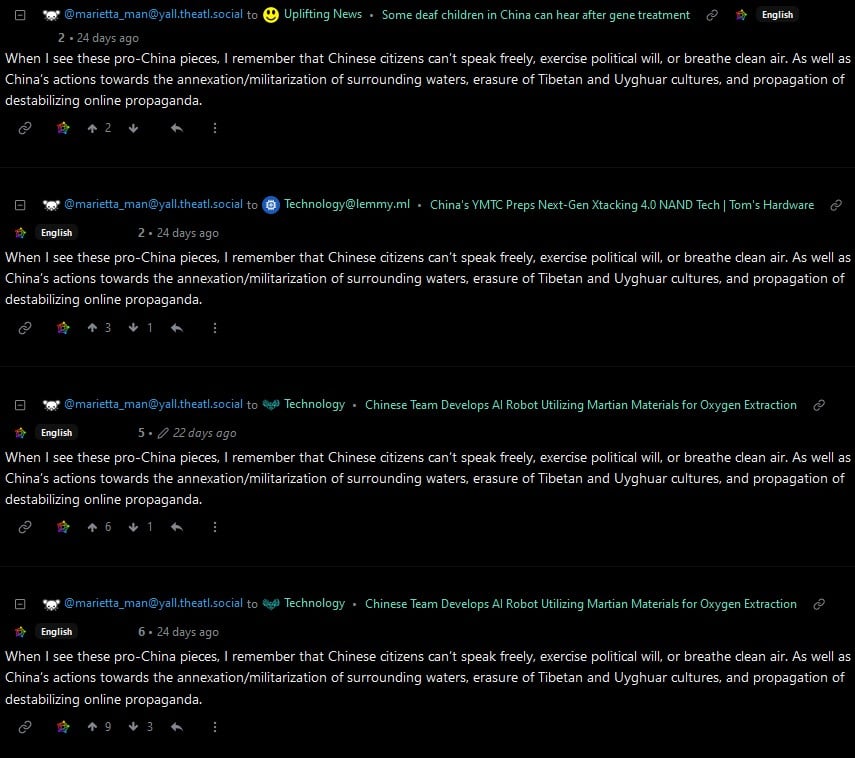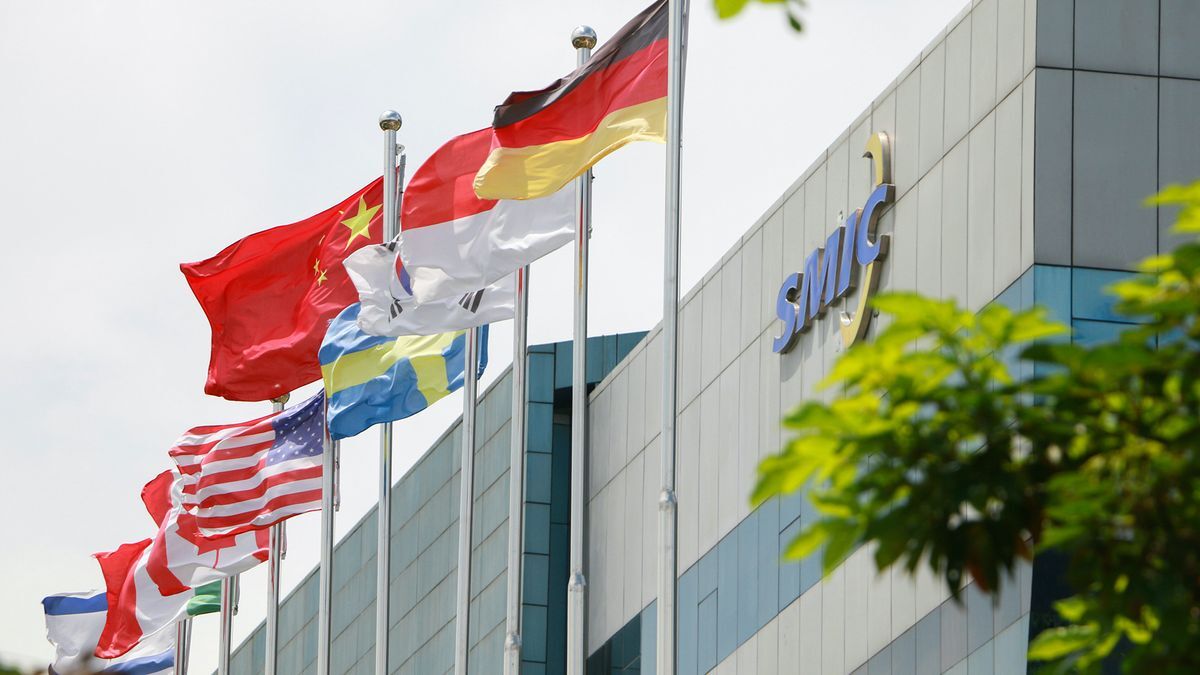I don’t see these sanctions being an efficient method of curbing their capabilities when they’re that good at corporate espionage and they have a significant amount of production capacity compared to the rest of the world. It’s just a matter of time before they catch up.
China: Does a free market capitalism
Western nations: No, not like that!
Capitalism has never been about playing fair.
It’s always built around what makes rich people richer the fastest.
Corporate espionage and requiring western comoanies to partner with local companies or government is not free market capitalism, but it worked.
A true free market doesn’t have IP rights. Corporate espionage absolutely is end game free market.
A true free market doesn’t require joint ventures either. There is no true free market worldwide and really, never has been. it’s a concept, not a reality.
It’s fine to be against IP rights but they serve a purpose. If China don’t wish to honour them, they could leave the wto. They won’t though.
Hiring critical staff for more money? Leveraging regulatory capture to acquire trade secrets?
It’s exactly free market capitalism. It’s how the late stage free market will always play out.
The sanctions aren’t supposed to cripple China indefinitely. They’re just supposed to give the US enough time to build fabs for military chips before China invades Taiwan.
And yes, I am aware that may not happen within our lifetimes. I did not write the sanctions.
Time is quite a valuable resource
One explanation is that SMIC has low-yield early production for 5mm (which is why the Qingyun L540 is only being sold to government agencies: limited scale, like Intel’s 10nm chip back in 2018). The other explanation is that Huawei for some reason decided to stockpile 5nm chips and disable the 5G modem in them to put the thing in a laptop (rather than in a phone), maybe because they now have domestic 7nm and no longer need a stockpile… But that this stockpile was evidently not very big since they’re not selling it to consumers. Both are in the realm of possibility, but if the former is the case then SMIC is moving shockingly fast.
Intel was stuck on DUV 10nm for almost a decade (and indeed, DUV 14nm was also a struggle because of the need for dual-patterning). SMIC would have now not only matched Intel 10nm (Intel 10/7) with SMIC’s 7nm process, but leapfrogged Intel (who is yet to ship Intel 4 to customers). I’m somewhat skeptical, but with the wave of TSMC engineers who have jumped ship to Chinese firms for higher pay in recent years, I wouldn’t be surprised.
At the same time, TSMC is basically tapped out for their FinFET process: N2 is estimated to only be 10-15% more dense than N3. Intel and Samsung are in a similar position with their newer processes.
The race for Surrounding-Gate Transistors (SGT) is on
IBM took a bunch of DARPA money and the executives sold everything to SMIC, 0.35um to copper 0.18um and eventually 45nm for some cash probably for a year of good stock prices at the height of losing money at their fabs cranking out losing memory chips.
It drastically helped them catch up with TSMC https://www.sec.gov/Archives/edgar/data/1267482/000130901408000703/exhibit1.htm
Thank you for this breakdown. Most of the comments are missing the unfolding silicon cold war that’s opening up between China and Taiwan. Progress at SMIC has been weirdly fast despite not having access to EUV lithography. China is now using unknown technology to keep pace with Western development and it’s either home grown lithography or China grabbed some ASML machines and figured out the maintenance? Either way it’s very interesting.
So they managed to reinvent EUV and other necessary components all in China?
You don’t technically need EUV for 5nm, it’s just that it’s really hard. Intel tried to stick with DUV for their 10nm (Intel 7) process and look how long that was delayed.
And we all know they will end up with a shit chip.
Just look at the hyped Huawei Mate 60 pro.
You can have a good chip with a bad process and a bad chip with a good process. Nvidia Ampere used Samsung 8N to cut costs, but it still kicked the ass of the competition. Intel shipped hot garbage for years, but it wasn’t because their 14nm process was bad (for a number of years, Intel 14nm was a very solid process.
When I see these pro-China pieces, I remember that Chinese citizens can’t speak freely, exercise political will, or breathe clean air. As well as China’s actions towards the annexation/militarization of surrounding waters, erasure of Tibetan and Uyghuar cultures, and propagation of destabilizing online propaganda.
OP seems to post quite a few.

Do you enter every post about China to paste this or what?
No
Reminds me of the USA






